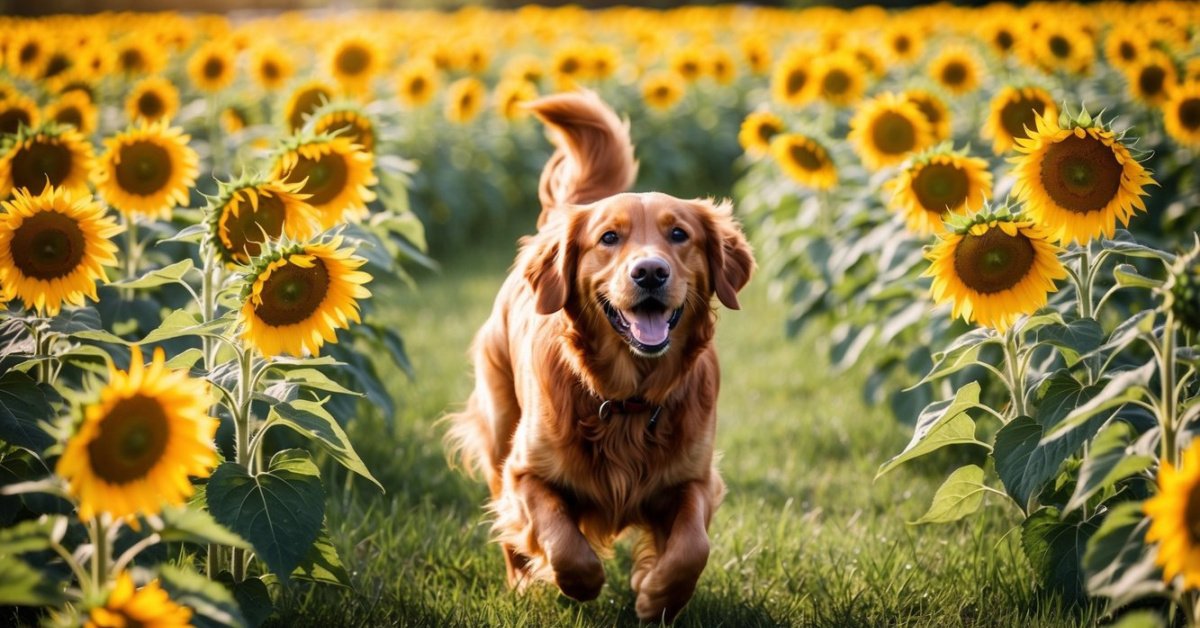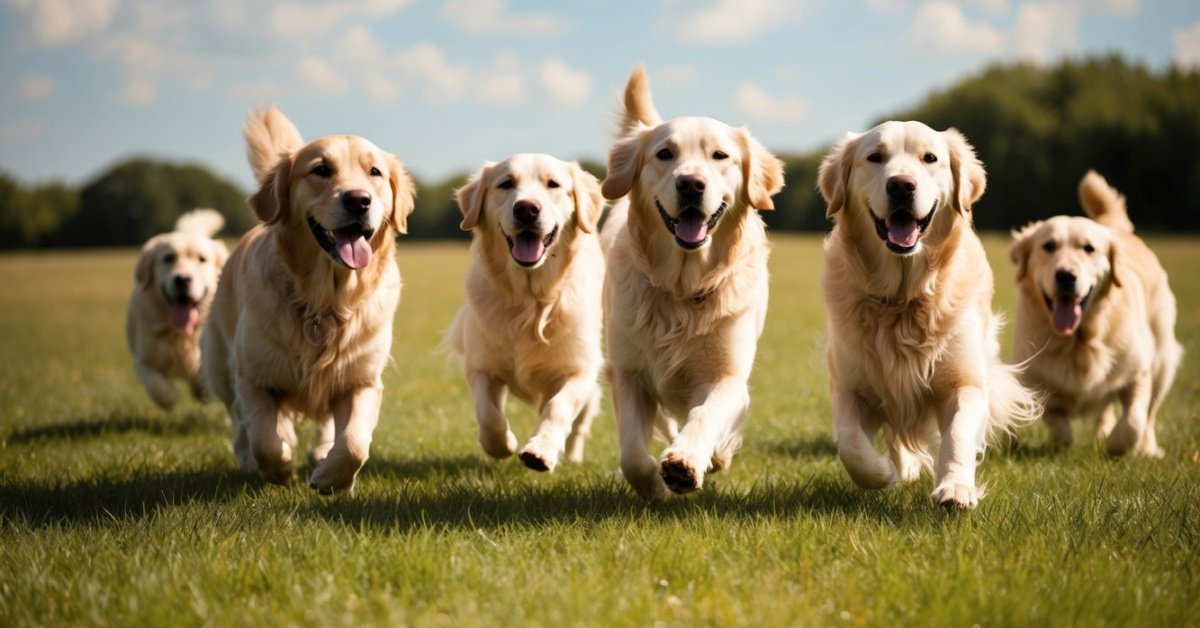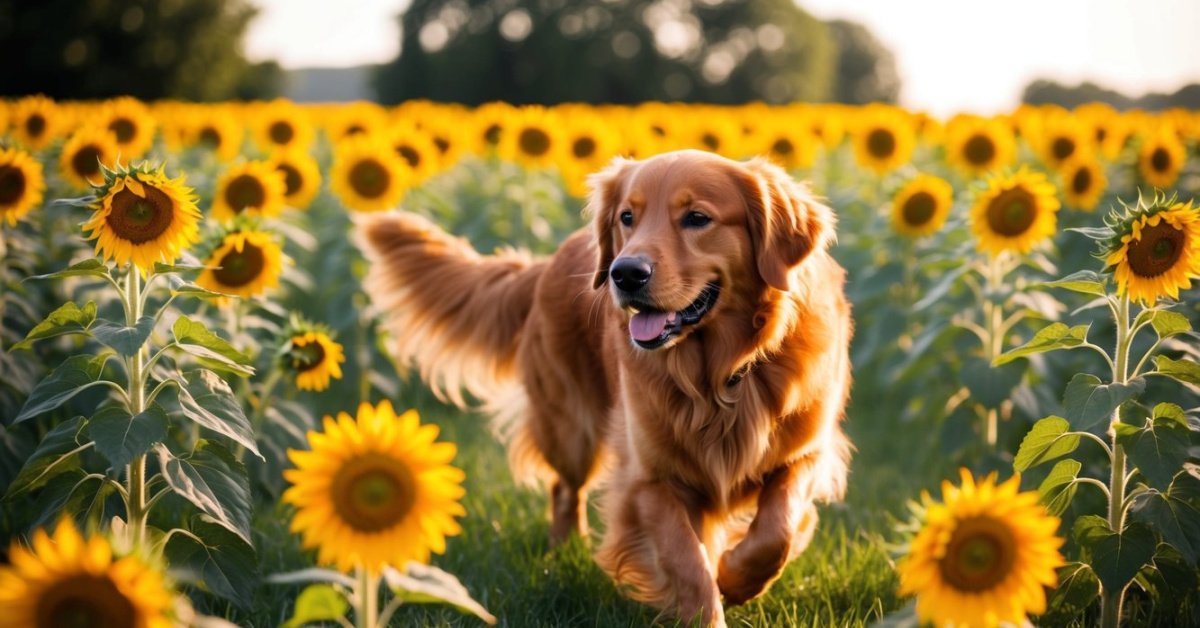Bringing a Golden Retriever puppy into your home is an exciting adventure filled with joy and laughter. These lovable furballs are known for their friendly nature and intelligence, but training them can come with its own set of challenges. I’ve learned that while it’s easy to get swept up in their playful antics, there are common pitfalls that can hinder effective training.
From inconsistent commands to overlooking socialization needs, these mistakes can set back your puppy’s progress. I’ve encountered these issues myself, and understanding them is the first step toward raising a well-behaved companion. Let’s dive into some of the most frequent training pitfalls and how to avoid them, ensuring your Golden Retriever grows into the loyal friend you’ve always wanted.
Understanding Golden Retriever Behaviors
Golden Retrievers display various behaviors influenced by their genetics, upbringing, and environment. Recognizing these behaviors helps in forming effective training strategies.
Common Traits of Golden Retrievers
Golden Retrievers are known for their friendly disposition, high energy levels, and eagerness to please. They thrive on companionship and enjoy being around people.
- Affectionate: They seek affection and enjoy physical contact, often leaning against me or nudging for attention.
- Intelligent: Their intelligence facilitates learning commands quickly, making them excel in training when approached correctly.
- Energetic: Regular exercise is crucial; they require daily walks or playtime to stay happy and healthy.
- Social: They often show friendliness towards strangers and other animals, which underscores the importance of early socialization experiences.
Importance of Early Training
Early training establishes a strong foundation for a well-behaved Golden Retriever. Starting training at a young age promotes positive behaviors.
- Behavior shaping: Early training focuses on shaping desirable behaviors, preventing issues like jumping or excessive barking.
- Bonding: Training strengthens the bond between me and my puppy and builds trust through consistent communication.
- Social skills: Exposure to different environments and experiences during puppyhood enhances social skills, helping my dog adapt to new situations.
- Mental stimulation: Early training provides mental challenges that engage my puppy, preventing boredom and destructive behavior.
Understanding these characteristics and the significance of early training ensures a smoother and rewarding experience while raising a Golden Retriever puppy.
Common Training Pitfalls
Training a Golden Retriever puppy comes with challenges that can impact their development. Understanding these pitfalls helps provide a smoother training experience.
Lack of Consistency
Being inconsistent with commands creates confusion for the puppy. Using different phrases for the same action leads to misunderstandings during training sessions. For example, saying “come” one time and “here” another time makes it hard for the puppy to know what you expect. Additionally, varying rules between family members can confuse the puppy even more. To avoid this pitfall, I reinforce a consistent set of commands and ensure everyone in the household follows the same guidelines.
Overwhelming the Puppy
Overloading a Golden Retriever puppy with too much information at once can hinder their ability to learn effectively. Trying to teach multiple commands or skills in one session leads to stress and frustration. For instance, attempting to train “sit,” “stay,” and “heel” all at once overwhelms them. Instead, I focus on one command or behavior per training session, allowing the puppy to master each skill before introducing new ones. This approach encourages positive reinforcement and builds their confidence.
Socialization Mistakes
Socialization plays a crucial role in a Golden Retriever puppy’s development. Missing out on proper socialization leads to fearful or overly aggressive behaviors later in life.
Not Exposing to Different Environments
Not exposing my puppy to various environments limits their adaptability. Golden Retrievers thrive in diverse settings. I take my puppy to parks, cafes, and different neighborhoods to build their confidence. Familiarizing them with sights, sounds, and scents prepares them for everyday life. Missing early exposure could result in anxiety or reluctance to explore new places. Getting out and about allows my puppy to embrace new experiences, ensuring they grow into a well-adjusted adult.
Ignoring Interaction with Other Pets
Ignoring interaction with other pets can hinder my puppy’s social skills. Golden Retrievers are naturally sociable and benefit from playtime with various animals. I ensure regular playdates with vaccinated and friendly dogs to promote healthy interactions. Observing their body language helps me understand when they feel comfortable or overwhelmed. Neglecting this aspect may lead to fear-based aggression or inability to communicate effectively with other dogs. Encouraging positive experiences with pets strengthens my puppy’s social confidence and enhances their behavior around other animals.
Communication Errors
Communication errors can significantly affect the training process of a Golden Retriever puppy. Misunderstandings often arise when owners fail to interpret their puppies’ signals correctly.
Misinterpreting Puppy Signals
Misinterpreting puppy signals leads to confusion and frustration for both the puppy and the owner. Golden Retrievers express their needs and feelings through body language and vocalizations. I’ve observed that a wagging tail often indicates excitement or happiness, but if the puppy is also showing signs of lip licking or cowering, it might indicate discomfort or anxiety in certain situations. Recognizing signs such as barking, whining, or play bows is crucial for understanding what my puppy wants or needs at any moment. Correct interpretation fosters a supportive training environment, allowing my puppy to feel safe and confident in expressing emotions.

Using Inconsistent Commands
« How to Prepare a Golden Retriever for Obedience: Tips for Success and Bonding
Top Golden Retriever Obedience Training Mistakes to Avoid for Success »
Using inconsistent commands creates confusion during training sessions. I’ve learned that employing different words for the same command can lead to misunderstandings. For instance, if I alternate between “sit” and “down” when teaching positioning, my puppy struggles to grasp what I mean. Consistency in language among all family members is vital. I encourage everyone in the household to use the same commands and tone to avoid mixed messages. This consistency helps establish clear expectations, making it easier for my puppy to understand and respond properly.
Conclusion
Training a Golden Retriever puppy can be an incredibly rewarding experience. I’ve learned that being aware of common pitfalls makes a world of difference in shaping a well-behaved companion. Consistency and socialization are key to helping them thrive.
It’s amazing to see how these little furballs grow into confident and loving dogs when given the right guidance. Remember to be patient with yourself and your puppy during this journey. Each step you take together strengthens your bond and sets the stage for a happy, harmonious life. Embrace the challenges and enjoy the process. You’re not just training a puppy; you’re building a lifelong friendship.











